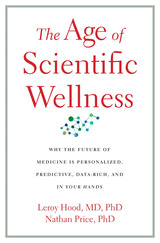
“If you want to understand how the latest advances in genomics and AI can completely transform your health, and to translate this promise into practical tools that you can apply today, read this book!”—Mark Hyman, author of Young Forever
Taking us to the cutting edge of the new frontier of medicine, a visionary biotechnologist and a pathbreaking researcher show how we can optimize our health in ways that were previously unimaginable.
We are on the cusp of a major transformation in healthcare—yet few people know it. At top hospitals and a few innovative health-tech startups, scientists are working closely with patients to dramatically extend their “healthspan”—the number of healthy years before disease sets in. In The Age of Scientific Wellness, two visionary leaders of this revolution in health take us on a thrilling journey to this new frontier of medicine.
Today, most doctors wait for clinical symptoms to appear before they act, and the ten most commonly prescribed medications confer little or no benefit to most people taking them. Leroy Hood and Nathan Price argue that we must move beyond this reactive, hit-or-miss approach to usher in real precision health—a form of highly personalized care they call “scientific wellness.” Using information gleaned from our blood and genes and tapping into the data revolution made possible by AI, doctors can catch the onset of disease years before symptoms arise, revolutionizing prevention. Current applications have shown startling results: diabetes reversed, cancers eliminated, Alzheimer’s avoided, autoimmune conditions kept at bay.
This is not a future fantasy: it is already happening, but only for a few patients and at high cost. It’s time to make this gold standard of care more widely available. Inspiring in its possibilities, radical in its conclusions, The Age of Scientific Wellness shares actionable insights to help you chart a course to a longer, healthier, and more fulfilling life.
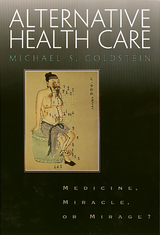
Michael S. Goldstein's Alternative Health Care is the first comprehensive account of the growing presence of alternative medicine in American society. Beginning with the basic premises of alternative medicine, Goldstein's book examines the clinical, economic, and political realities of the broad range of alternative care options and practices in the United States and explains why alternative medicine has become a viable choice for so many people who are ill or who seek to remain healthy.
Bringing history, policy, practice, personal experience, and in-depth sociological analysis together into one comprehensive volume, Goldstein -- one of the first recipients of funding from the National Institute of Health for research on alternative medicine -- also studies the complexities of the relationship between spirituality and alternative medicine and the changing role of alternative medicine in the larger context of American health care. Probing such issues as the corporatization of medicine, the role of alternative medicine in health care, and the dynamic relationship between conventional and alternative treatments, Goldstein's Alternative Health Care is more than the long-awaited introduction to the many forms of alternative medicine. It is also the measure of the implications of such care for practitioners, businesses, policymakers, and patients alike.
Alternative Health Care is the definitive guide for the millions of Americans interested in alternative medicine and treatment, American health care, the sociology of medicine, and American social issues.

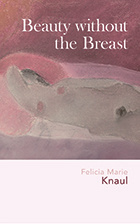
Felicia Knaul, an economist who has lived and worked for two decades in Latin America on health and social development, documents the personal and professional sides of her breast cancer experience. Beauty without the Breast contrasts her difficult but inspiring journey with that of the majority of women throughout the world who face not only the disease but stigma, discrimination, and lack of access to health care. This wrenching contrast is the cancer divide—an equity imperative in global health.
Knaul exposes barriers affecting women in low and middle-income countries and highlights the role of men, family, and community in responding to the challenge of breast cancer. She shares striking data about breast cancer, a leading killer of young women in developing countries, and narrates the process of applying this evidence and launching Tómatelo a Pecho (also the book title in Spanish)—a Mexico-based program promoting awareness and access to health care. The book concludes with letters from Dr. Julio Frenk, her husband and former Minister of Health of Mexico, written while they shared the trauma of diagnosis and treatment. With force and lucidity, the book narrates the journey of patient and family as they courageously navigate disease and survivorship.
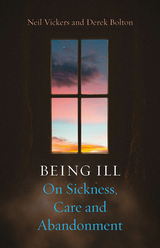
A serious illness often changes the way others see us. Few, if any, relationships remain the same. The sick become more dependent on partners and family members, while more distant contacts become strained. The carers of the ill are also often isolated. This book focuses on our sense of self when ill and how infirmity plays out in our relationships with others. Neil Vickers and Derek Bolton offer an original perspective, drawing on neuroscience, psychology, and psychoanalysis as well as memoirs of the ill or their carers to reveal how a sense of connectedness and group belonging can not only improve care but also make societies more resilient to illness. This is an essential book on the experience of major illness.
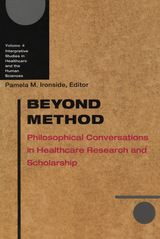
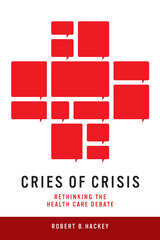
In Cries of Crisis, Robert B. Hackey analyzes media coverage, political speeches, films, and television shows to demonstrate the role that language and symbolism have played in framing the health care debate, shaping policy making, and influencing public perceptions of problems in the health care system. He demonstrates that the idea of crisis now means so many different things to so many different groups that it has ceased to have any shared meaning at all. He argues that the ceaseless talk of “crisis,” without a commonly accepted definition of that term, has actually impeded efforts to diagnose and treat the chronic problems plaguing the American health care system. Instead, he contends, reformers must embrace a new rhetorical strategy that links proposals to improve the system with deeply held American values like equality and fairness.

This book examines some of the challenges associated with ageing in multicultural societies. Worldwide, ageing presents a profound potential shift in design for society. The impact of the change in population balance challenges designers, planners, and health care professionals to develop solutions to better meet the needs of older citizens. Different disciplinary and cultural perspectives allow for new approaches to issues of housing, community interaction and cooperation, health and well-being, and the integration of new technologies.
Drawing from case studies, interviews with key practitioners in design and health, and practical pedagogical experience, the authors provide a framework for engaging designers, planners, and health professionals in the process of creating new design solutions for the growing global ageing population.
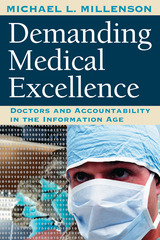
"If you read only one book this year, read Demanding Medical Excellence. It's that good, and the revolution it describes is that important."—Health Affairs
"Millenson has done yeoman's work in amassing and understanding that avalanche of data that lies beneath most of the managed-care headlines. . . . What he finds is both important and well-explained: inconsistency, overlap, and inattention to quality measures in medical treatment cost more and are more dangerous than most cost-cutting measures. . . . [This book] elevates the healthcare debate to a new level and deserves a wide readership."—Library Journal
"An involving, human narrative explaining how we got to where we are today and what lies ahead."—Mark Taylor, Philadelphia Inquirer
"Read this book. It will entertain you, challenge, and strengthen you in your quest for better accountability in health care."—Alex R. Rodriguez, M.D., American Journal of Medical Quality
"Finally, a health-care book that doesn't wring its hands over the decline of medicine at the hands of money-grubbing corporations. . . . This is a readable account of what Millenson calls a 'quiet revolution' in health care, and his optimism makes for a refreshing change."—Publishers Weekly
"With meticulous detail, historical accuracy, and an uncommon understanding of the clinical field, Millenson documents our struggle to reach accountability."—Saty Satya-Murti, M.D., Journal of the American Medical Association
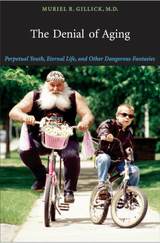
You’ve argued politics with your aunt since high school, but failing eyesight now prevents her from keeping current with the newspaper. Your mother fractured her hip last year and is confined to a wheelchair. Your father has Alzheimer’s and only occasionally recognizes you. Someday, as Muriel Gillick points out in this important yet unsettling book, you too will be old. And no matter what vitamin regimen you’re on now, you will likely one day find yourself sick or frail. How do you prepare? What will you need?
With passion and compassion, Gillick chronicles the stories of elders who have struggled with housing options, with medical care decisions, and with finding meaning in life. Skillfully incorporating insights from medicine, health policy, and economics, she lays out action plans for individuals and for communities. In addition to doing all we can to maintain our health, we must vote and organize—for housing choices that consider autonomy as well as safety, for employment that utilizes the skills and wisdom of the elderly, and for better management of disability and chronic disease.
Most provocatively, Gillick argues against desperate attempts to cure the incurable. Care should focus on quality of life, not whether it can be prolonged at any cost. “A good old age,” writes Gillick, “is within our grasp.” But we must reach in the right direction.
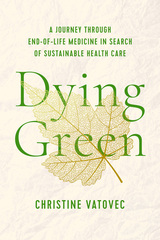
In Dying Green, award-winning educator Christine Vatovec offers an engaging study that asks us to consider the broader environmental sustainability of health care. Through a comparative analysis of the care provided to terminally ill patients in a conventional cancer ward, a palliative care unit, and an acute-care hospice facility, she shows how decisions made at a patient’s bedside govern the environmental footprint of the healthcare industry. Likewise, Dying Green offers insights on the many opportunities that exist for reducing the ecological impacts of medical practices in general, while also enhancing care for the dying in particular. By envisioning a more sustainable approach to care, this book offers a way forward that is better for both patients and the planet.
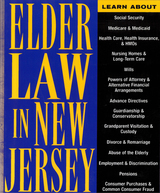
In New Jersey, one in five residents is over the age of 65. The Garden State’s legal and healthcare systems are becoming increasingly complex, making it more difficult than ever for seniors to understand their rights and take advantage of available assistance and services.
Elder Law in New Jersey provides important, practical information to New Jersey residents, especially older adults who have become entangled in an incomprehensible web of healthcare and social security bureaucracies, younger adults who are caregivers to elderly parents, and middle-class citizens who fear the debilitating physical and financial effects of chronic illness.
The legal problems most often encountered by seniors can involve frustrating losses of control over nearly all aspects of their lives. Attorney Alice Dueker, who specializes in elder law, explains complex legal issues in easily understood language. She looks at:
· various ways to obtain and pay for healthcare, including nursing home care
· how to create a will
· how to address and avoid internal family disputes, including child custody, marriage, divorce, grandparent visitation rights, and elder abuse
· employment issues such as age and disability discrimination, as well as pensions
· problems of consumer fraud
· housing issues for both tenants and homeowners
She provides contact information for agencies and programs that provide free or low cost services for seniors, and resources for locating attorneys.
Elder law is state specific, so New Jersey residents will find this book especially helpful and applicable to their own lives.
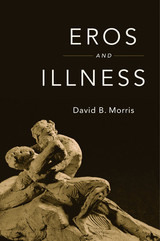
Susan Sontag once described illness as “the night-side of life.” When we or our loved ones fall ill, our world is thrown into darkness and disarray, our routines are interrupted, our deepest beliefs shaken. The modern regime of hyper-logical biomedicine offers little solace when it comes to the effects of ill health on our inner lives. By exploring the role of desire in illness, Eros and Illness offers an alternative: an unconventional, deeply human exploration of what it means to live with, and live through, disease.
When we face down illness, something beyond biomedicine’s extremely valuable advances in treatment and prevention is sorely needed. Desire in its many guises plays a crucial part in illness, David Morris shows. Emotions, dreams, and stories—even romance and eroticism—shape our experiences as patients and as caregivers. Our perception of the world we enter through illness—including too often a world of pain—is shaped by desire.
Writing from his own heartbreaking experience as a caretaker for his wife, Morris relates how desire can worsen or, with care, mitigate the heavy weight of disease. He looks to myths, memoirs, paintings, performances, and narratives to understand how illness is intertwined with the things we value most dearly. Drawing on cultural resources from many centuries and media, Eros and Illness reaches out a hand to guide us through the long night of illness, showing us how to find productive desire where we expected only despair and defeat.
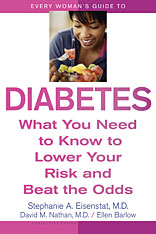
Women have long needed a book devoted to their unique issues with diabetes. This up-to-date and practical guide advocates simple lifestyle changes that can help women reduce their risk of getting diabetes or, if already diagnosed, prevent the disease’s most serious complications. Every Woman’s Guide to Diabetes translates the latest findings from diabetes research into proven strategies busy women can use to stay healthy and gain control over an often overwhelming disease. The authors discuss the nature of diabetes, helping readers through the complex medical decisions involved in diabetes treatment. They highlight strategies to decrease the emotional stress and social isolation that often accompany diagnosis, and offer everyday techniques for managing blood sugar.
Key features include:
— Unique aspects of diabetes for women throughout the life cycle
— Timetable of recommended tests and check-ups
— Guide to medications with common dosages
— Charts to help organize diabetes-care tasks and supplies
— Time-management tips for better disease regulation
— Guide to contraceptives available to women with diabetes
— Review of issues critical to women before, during, and following pregnancy
— Advice for overcoming barriers to weight loss and exercise
— Plan for intelligent diet trade-offs while still enjoying meals
— Practical tips for planning exercise
— Strategies to avoid diabetes “burn-out”
Written by two physicians (one of whom is a woman living with diabetes) and an experienced medical writer, Every Woman’s Guide to Diabetes recognizes the power that women have in their households to effect lifestyle changes that will benefit themselves and loved ones, including their mothers, daughters, sisters, and partners. This power can reduce the toll of the diabetes epidemic.
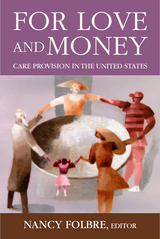

The goals of health and human security are fundamentally valued in all societies, yet the breadth of their interconnections are not properly understood. This volume explores the evolving relationship between health and security in today's interdependent world, and offers policy guidelines for global health action.
This volume underscores three basic principles. First, recent developments in the changing security landscape present enormous challenges for human security and global health. Second, although the connections between health and security are long-standing, the current context of new conflicts, pervasive poverty, and accelerating global flows has brought the fields closer together. Finally, a human security approach dependent upon individual and collective action can identify new strategies for meeting the goals of global health and security.
The distinguished contributions to this volume were commissioned by Harvard University's Global Equity Initiative, a research unit supporting the work of the International Commission on Human Security.
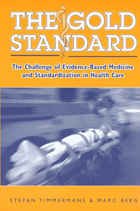
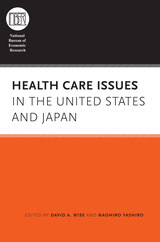
Recent data show wide disparity between Japan and the United States in the effectiveness of their health care systems. Japan spends close to the lowest percentage of its gross domestic product on health care among OECD countries, the United States spends the highest, yet life expectancies in Japan are among the world’s longest. Clearly, a great deal can be learned from a comprehensive comparative analysis of health care issues in these two countries.
In Health Care Issues in the United States and Japan, contributors explore the structural characteristics of the health care systems in both nations, the economic incentives underlying the systems, and how they operate in practice. Japan’s system, they show, is characterized by generous insurance schemes, a lack of gatekeepers, and fee-for-service mechanisms. The United States’ structure, on the other hand, is distinguished by for-profit hospitals, privatized health insurance, and managed care. But despite its relative success, an aging population and a general shift from infectious diseases to more chronic maladies are forcing the Japanese to consider a model more closely resembling that of the United States.
In an age when rising health care costs and aging populations are motivating reforms throughout the world, this timely study will prove invaluable.
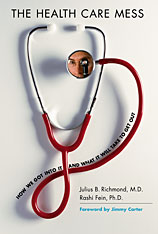
If we can decode the human genome and fashion working machines out of atoms, why can't we navigate the quagmire that is our health care system? In this important new book, Julius Richmond and Rashi Fein recount the fraught history of health care in America since the 1960s. After the advent of Medicare and Medicaid and with the progressive goal to make advances in medical care available to all, medical costs began their upward spiral. Cost control measures failed and led to the HMO revolution, turning patients into consumers and doctors into providers. The swelling ranks of Americans without any insurance at all dragged the United States to the bottom of the list of industrialized nations.
Over the last century medical education was also profoundly transformed into today's powerful triumvirate of academic medical centers, schools of medicine and public health, and research programs, all of which have shaped medical practice and medical care. The authors show how the promises of medical advances have not been matched either by financing or by delivery of care.
As a new crisis looms, and the existing patchwork of insurance is poised to unravel, American leaders must again take up the question of health care. This book brings the voice of reason and the promise of compromise to that debate.
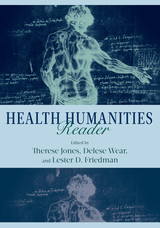
In Health Humanities Reader, editors Therese Jones, Delese Wear, and Lester D. Friedman have assembled fifty-four leading scholars, educators, artists, and clinicians to survey the rich body of work that has already emerged from the field—and to imagine fresh approaches to the health humanities in these original essays. The collection’s contributors reflect the extraordinary diversity of the field, including scholars from the disciplines of disability studies, history, literature, nursing, religion, narrative medicine, philosophy, bioethics, medicine, and the social sciences.
With warmth and humor, critical acumen and ethical insight, Health Humanities Reader truly humanizes the field of medicine. Its accessible language and broad scope offers something for everyone from the experienced medical professional to a reader interested in health and illness.

Contributors to this volume examine historical and contemporary visual practices-Chinese health fairs, documentary films produced by the World Health Organization, illness maps, fashions for nurses, and live surgery on the Internet-in order to delve into the political and epidemiological contexts underlying their creation and dissemination.
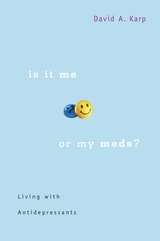
By the millennium Americans were spending more than 12 billion dollars yearly on antidepressant medications. Currently, millions of people in the U.S. routinely use these pills. Are these miracle drugs, quickly curing depression? Or is their popularity a sign that we now inappropriately redefine normal life problems as diseases? Are they prescribed too often or too seldom? How do they affect self-images?
David Karp approaches these questions from the inside, having suffered from clinical depression for most of his adult life. In this book he explores the relationship between pills and personhood by listening to a group of experts who rarely get the chance to speak on the matter--those who are taking the medications. Their voices, extracted from interviews Karp conducted, color the pages with their experiences and reactions--humor, gratitude, frustration, hope, and puzzlement. Here, the patients themselves articulate their impressions of what drugs do to them and for them. They reflect on difficult issues, such as the process of becoming committed to medication, quandaries about personal authenticity, and relations with family and friends.
The stories are honest and vivid, from a distraught teenager who shuns antidepressants while regularly using street drugs to a woman who still yearns for a spiritual solution to depression even after telling intimates "I'm on Prozac and it's saving me." The book provides unflinching portraits of people attempting to make sense of a process far more complex and mysterious than doctors or pharmaceutical companies generally admit.
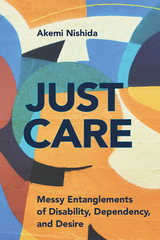
Just Care is Akemi Nishida’s thoughtful examination of care injustice and social justice enabled through care. The current neoliberal political economy has turned care into a business opportunity for the healthcare industrial complex and a mechanism of social oppression and control. Nishida analyzes the challenges people negotiate whether they are situated as caregivers, receivers, or both. Also illuminated is how people with disabilities come together to assemble community care collectives and bed activism (resistance and visions emerging from the space of bed) to reimagine care as a key element for social change.
The structure of care, Nishida writes, is deeply embedded in and embodies the cruel social order—based on disability, race, gender, migration status, and wealth—that determines who survives or deteriorates. Simultaneously, many marginalized communities treat care as the foundation of activism. Using interviews, focus groups, and participant observation with care workers and people with disabilities, Just Care looks into lives unfolding in the assemblage of Medicaid long-term care programs, community-based care collectives, and bed activism. Just Care identifies what care does, and asks: How can we activate care justice or just care where people feel cared affirmatively and care being used for the wellbeing of community and for just world making?
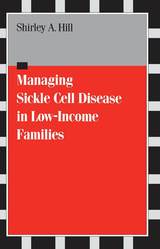

The essays in this volume discuss racism and sexism as they affect mental health. In particular, they focus on training, diagnosis, treatment, and research, emphasizing the power relationships between individuals and groups that cause unequal access to mental health care. They offer perspectives on issues and their distinct effects on mental health: interracial adoptions, teenage motherhood, gender bias in mental health diagnosis and therapy, prisons used as substitutes for hospitals, homeless families, and increasing violence- in the home, on college campuses, and in the streets.
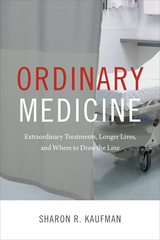
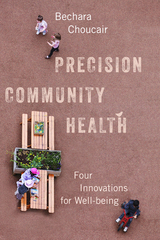
In Precision Community Health, Choucair shows how those successes can be replicated and expanded around the country. The key is to use advanced technologies to identify which populations are most at risk for specific health threats and avert crises before they begin. Big data makes precision community health possible. But in our increasingly complex world, we also need new strategies for developing effective coalitions, media campaigns, and policies. This book showcases four innovations that move public health departments away from simply dispensing medical care and toward supporting communities to achieve true well-being.
The approach Choucair pioneered in Chicago requires broadening our thinking about what constitutes public health. It is not simply about access to a doctor, but access to decent housing, jobs, parks, food, and social support. It also means acknowledging that a one-size-fits-all strategy may exacerbate inequities. By focusing on those most in need, we create an agenda that is simultaneously more impactful and more achievable. The result is a wholesale change in the way public health is practiced and in the well-being of all our communities.
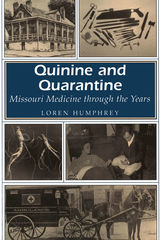
Presenting a fascinating overview of medicine in Missouri from the early days of epidemics to present-day technological advances, Quinine and Quarantine approaches the history of medicine as an integral part of the state's development.
Examining the changing environmental risks and diseases that threatened Missouri over the years and the role of the Missouri and Mississippi Rivers as prime routes for the spread of diseases and innovations, Loren Humphrey discusses the efforts of citizens, legislators, and health officials confronting various medical challenges. He offers intriguing medical details of the past two centuries interspersed with the stories of significant historical figures and Missourians' personal accounts. He tells of the pioneers' struggles to use natural remedies acquired from Native Americans, the gory and unsanitary attempts to treat early gunshot wounds, and the common afflictions and diseases such as "swamp fever," measles, mumps, consumption, dysentery, smallpox, and typhoid that seemed beyond medicine's effects. Humphrey also discusses the significance of the discovery and reluctant acceptance of the "antifever" breakthrough now famous as quinine, as well as the lessons learned as a result of Civil War medical techniques.
Quinine and Quarantine takes readers on a remarkable journey that concludes in the present, arguably the most exciting and controversial era for medical advances. Humphrey explores new imaging techniques, laparoscopic surgery, and research on ways to overcome bacterial resistance to antibiotics. He challenges the reader to consider such compelling issues as the escalating cost of health care and the threats posed by environmental hazards. He also identifies topics over which Missourians will likely struggle well into the next century, such as transplants, managed care, abortion, and assisted suicide.
Organized chronologically in fifty-year segments and written in language free of jargon, Quinine and Quarantine offers readers a broad historical view of the medical problems and solutions faced by the people of Missouri, preparing them to cope with medical issues of the new millennium.
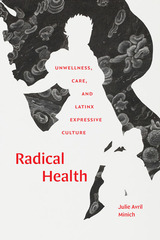
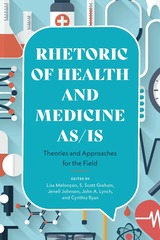
With a foreword by Judy Segal and in sections that address interdisciplinary perspectives, representations of health and illness in online spaces, and health activism and advocacy, this volume proceeds in a unique format: essays tackle these key topic areas through case studies ranging from food and its relation to public health, to apps that track fertility, to mental health and disability, to racial disparities that exist in public health campaigns about sudden infant death syndrome (SIDS). The essays within each section are then followed by responses from prominent scholars in the rhetoric of health and medicine—including John Lyne, J. Blake Scott, and Lisa Keränen—who take on the central theme and discuss how the theory or concept under study can and should evolve in the next stages of research. Unifying the essays is a consideration of RHM as a theoretical construct guiding research and thinking alongside the conceptual parameters that constitute what RHM is and can be in practice. In asking questions about the role of rhetoric—both as analytic and productive framework—in health and medicine, this volume engages with broader theoretical and ethical concerns about our current healthcare system and how healthcare and medical issues circulate in all the social, cultural, economic, and political aspects of our world.

How do smokers evaluate evidence that smoking harms health? Some evidence suggests that smokers overestimate health risks from smoking. This book challenges this conclusion. The authors find that smokers tend to be overly optimistic about their longevity and future health if they quit later in life.
Older adults' decisions to quit smoking require personal experience with the serious health impacts associated with smoking. Smokers over fifty revise their risk perceptions only after experiencing a major health shock--such as a heart attack. But less serious symptoms, such as shortness of breath, do not cause changes in perceptions. Waiting for such a jolt to occur is imprudent.
The authors show that well-crafted messages about how smoking affects quality of life can greatly affect current perceptions of smoking risks. If smokers are informed of long-term consequences of a disease, and if they are told that quitting can indeed come too late, they are able to evaluate the risks of smoking more accurately, and act accordingly.
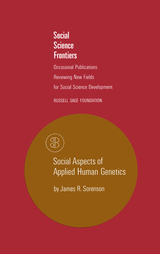
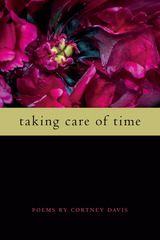
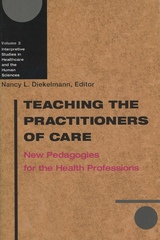
Nancy L. Diekelmann
Karin Dahlberg
Margaretha Ekebergh
Pamela M. Ironside
Kathryn Hopkins Kavanagh
Melinda M. Swenson
Sharon L. Sims
Rosemary A. McEldowney
Jan D. Sinnott
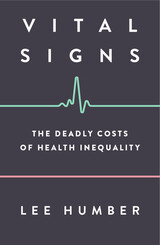
READERS
Browse our collection.
PUBLISHERS
See BiblioVault's publisher services.
STUDENT SERVICES
Files for college accessibility offices.
UChicago Accessibility Resources
home | accessibility | search | about | contact us
BiblioVault ® 2001 - 2024
The University of Chicago Press









